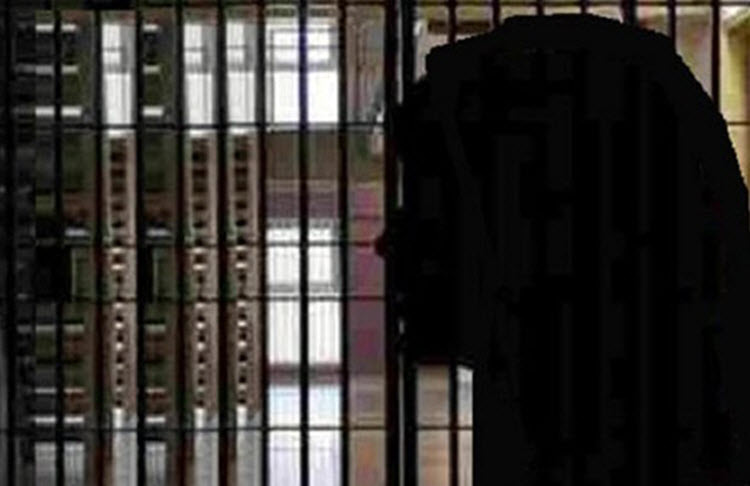
Iran Focus
London, 3 May – “Resist, my homeland, there is not much left of you
Soon you will hear in your sky
the sound of smiles and liberation’s call.”
~ Ma’edeh Shabaninejad
Fifteen year-old Ma’edeh Shabaninejad is accused of inciting violence through her poetry about Iran’s Arab minority. She was arrested two months ago at her aunt’s house in the southern city of Ahvaz, where she was hiding. According to her father, Sahid Shabaninejad, security forces had previously raided her own home and confiscated her poems.
“I am amazed the Iranian government is afraid of a 15-year-old girl,” Shabaninejad said in a telephone interview. “A young girl is in constant fear in prison and cannot sleep at night.”
Reportedly, Ma’edeh’s aunt was detained the same night, and some cousins were arrested the following day. Although Reuters attempted to confirm their accounts with the authorities, no further information was released.
Over the last few weeks, amid protests against water and power cuts, poverty, and alienation, hundreds of people have been arrested around Ahvaz, say two human rights groups. Alongside this, is a power struggle between Iran’s Shi’ite rulers and Sunni-ruled Saudi Arabia.
Ahvaz is home to most of Iran’s Arabs. It is the regional capital of an ethnically diverse area — southwestern Khuzestan province.
Supreme Leader Ali Khamenei warned against discrimination. In a statement posted on his website last July, he said, “Islamic values and the country’s constitution oblige all bodies of the Islamic Republic to prevent any discrimination and inequality toward Iranians of any ethnicity, race or religion.”
Clashes broke out between police and demonstrators in the southwest after the protests that erupted nationwide in January had died away elsewhere. Local Arabs were angry over what they say are barriers to fair employment and political rights in a region which accounts for 85 percent of Iran’s oil wealth.
The drought has also contributed to the unrest. Locals say a bad situation has been exacerbated by the diversion of water supplies to ethnically Persian provinces such as Isfahan. However, the Iranian government says it recognizes that the drought is a major problem, and is doing what it can.
Of the hundreds arrested in recent weeks, Ahwaz Human Rights Organisation has identified 70 by name. Reuters reports that the detainees are being held on security charges including separatism, Islamist militancy, or being agents of Saudi Arabia. They say that activists told the news agency that dozens of others have also been summoned, interrogated and released.
According to Reuters, released prisoners and detainees’ relatives said they had been pressured by security forces, especially the Revolutionary Guards, not to publicize their detention. Three released detainees told Reuters that they had “undergone routine beatings, threats and torture with electric shocks, including in one case, to the genitals.”
One detainee alleged that he had wires attached to his head while making a phone call to relatives from jail. He was told he would get an electric shock if he said anything out of line.
In February, demonstrators in Ahvaz drew parallels between water and electricity shortages in the town and in Syria’s Aleppo, where Iran is building power plants. Video footage on social media showed Iranian Arab protesters chanting, “Ahvaz is like Aleppo, it has no electricity, no water.”
According to Ahvazi activists, there are few Arab managers in government and local industries. They also accuse the authorities of trying to change the area’s demography.
Thousands of Arabs in Ahvaz and other cities in Khuzestan protested for several days in March, after a children’s television show about ethnic diversity featured dolls in various traditional dress, but there was no doll to represent the Arab minority. Local officials and the producer of the show have publicly apologized.
Some activists say that the arrests were linked to growing numbers of Iranian Arabs switching from Shi’ite Islam, Iran’s official religion, to Sunni Islam, practiced in Saudi Arabia. One of them, Abdullah, 25, was arrested in February and questioned about why he had switched to Sunni Islam, his sister told Reuters on condition of anonymity.
Iran officials call reports of mistreatment of Arabs “propaganda” spread by Gulf countries to stir unrest. In fact, Tehran said police had seized what it described as a Saudi and Western-backed “terrorist cell” in Khuzestan with grenades and anti-tank weapons in March.
Last month, Mohammad Hossein Ahmadi-Shahroudi, a member of the Assembly of Experts, the clerical body that appoints Iran’s supreme leader, acknowledged environmental problems, unemployment, and poverty in Khuzestan. He urged Arabs to express grievances through legal channels. He was quoted by ISNA news agency as saying, “The enemies of the unity of the Iranian nation and their domestic agents are trying to fish in troubled waters, and to derail the legitimate demands of Khuzestan’s people by provoking ethnic and tribal sentiments and prejudice.”


